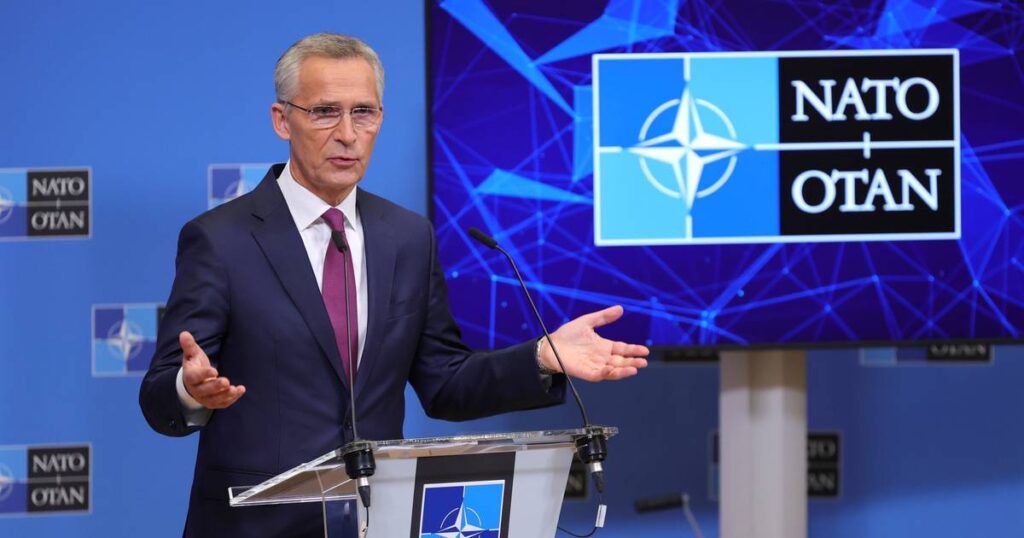Given that both the military alliance and Russia are scheduled to conduct nuclear exercises in the coming days, NATO Secretary-General Jens Stoltenberg has warned that Russian President Vladimir Putin would be crossing a “very important line” if he were to order the use of nuclear weapons in Ukraine.
Next week, NATO will conduct its exercise, called Steadfast Noon. The meticulously prepared manoeuvres take place every year at roughly the same time and last for about a week.
They don’t involve any live bombs, but they do involve fighter jets that can transport nuclear warheads.
Russia often conducts its own exercises around the same time, and NATO anticipates Moscow may test its nuclear arsenal this month. NATO will “closely monitor” what Russia is doing, according to Stoltenberg.
When asked what NATO would do in the event of a nuclear assault by Russia, Stoltenberg responded: “We won’t discuss the specifics of our response, but it is obvious that this will radically alter the nature of the conflict. This will indicate that a crucial line has been crossed.”
He added that “even any use of a smaller nuclear weapon will be a very serious thing, fundamentally changing the nature of the war in Ukraine, and of course that would have consequences”.
Concerns about Putin’s vow that he will employ any means required to preserve Russian territory have grown following a meeting of NATO’s clandestine Nuclear Planning Group among defence ministers in Brussels.
The meeting, which usually happens once or twice a year, comes amid high tension as some NATO allies, led by the US, supply Ukraine with advanced weapons and munitions to defend itself against Russian aerial attacks.
NATO is closely monitoring Russia’s actions in its conflict with Ukraine, but so far it has not altered its nuclear posture. However, Putin’s nuclear drills might make it more challenging for NATO to grasp what Russia may be planning, thus raising the chance of an accident.
“Russia will also be conducting its annual exercise, I think, the week after or just after the annual exercise,” UK Defence Secretary Ben Wallace previously told reporters.
But doing things outside of the ordinary is “what we don’t want.”
“Like NATO’s conference, which is all about making sure we are prepared for everything, this weekly drill is all about preparation, according to Wallace. Making sure that the 30 partners are prepared for whatever is thrown our way is the responsibility of this alliance, after all. And it is something we must keep pursuing.”
Fourteen NATO member countries will be involved in Steadfast Noon, which was planned before Russia invaded Ukraine on February 24.
The majority of the manoeuvres will take place more than 1000 kilometres away from Russia.
The organisation known as NATO has no weapons. Three of the alliance’s members, the US, the UK, and France, continue to have complete control over the nuclear weapons that are ostensibly associated with them. But France insists on maintaining its nuclear independence and doesn’t take part in Nuclear Planning Group meetings.
In response to Ukrainian forces using Western weapons and forcing the Russian army to retreat in some areas, Putin increased the stakes by annexing four Ukrainian provinces and ordering a partial mobilisation to shore up the eroding front line.
Putin has often hinted that he would use nuclear weapons to safeguard Russian gains when his war plans have gone astray. The threat is also aimed at deterring NATO nations from sending more sophisticated weapons to Ukraine..
NATO head issues a “very crucial line” warning to Russia

